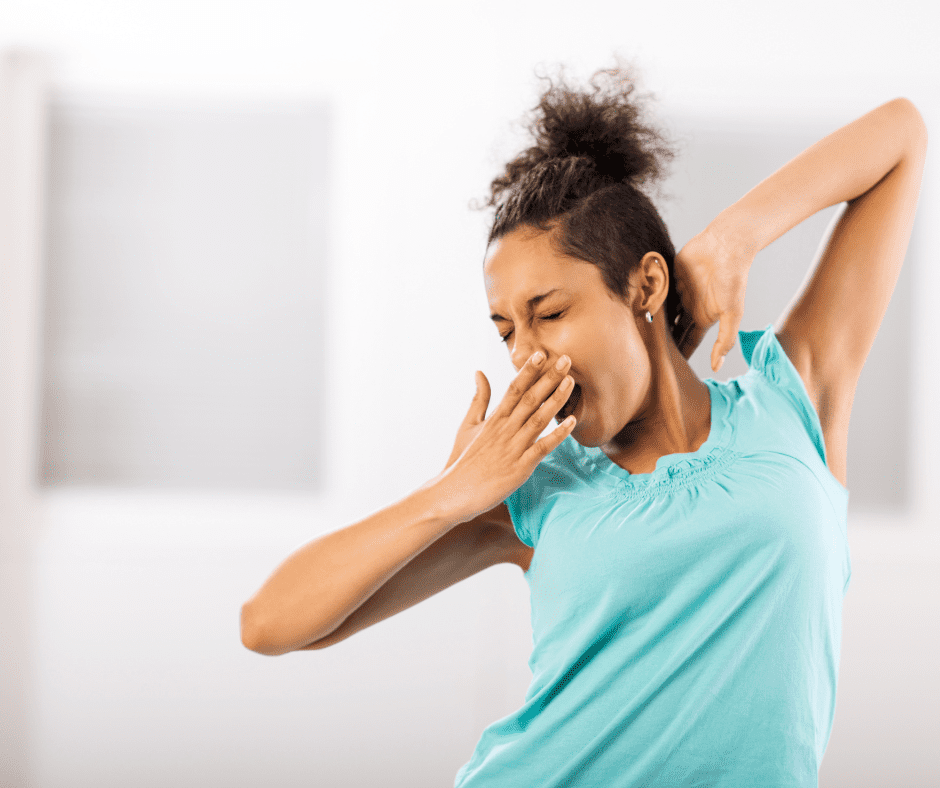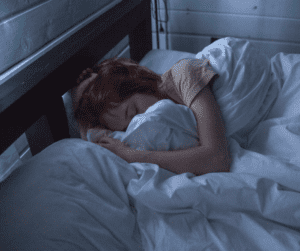Without sleep your body and mind won’t be able to recharge, you won’t feel fresh and your brain will struggle to function properly.
Many studies prove that exercise does in fact help you to fall asleep faster and it does improve your quality of sleep.
Let’s also have a look at this from a running point of view…

How Running May Help You Sleep Better
A study published in the Journal of Clinical Sleep Medicine found that regular exercise can improve the quality of your sleep, this is because aerobic exercise like running increases the amount of slow-wave sleep that you get.
Slow-wave sleep happens in stage 3 of the sleep cycle. (See sleep cycle here)
In this stage, you are in deep sleep, your blood pressure drops, your body promotes muscle growth & repair and growth hormone is released.
Running is a fantastic mood stabilizer and helps decompress your mind, this will help your body transition to sleep naturally.
Let’s sum it all up…
Reasons Why Running Improves Your Quality Of Sleep
- Improved Health
- Increase in slow-wave sleep
- Mood stabilizer
- Reduction in sleep apnea
- Increase in core body temperature
Improved Health
Running can offset the damage that poor sleep contributes to and as a result, will lengthen your lifespan.
Studies suggest that just thirty minutes of running can provide incredible benefits to your long and short-term health. There is no need to run for hours to reap the positive effects on your mental and physical well-being which will in turn have a positive impact on your quality of sleep.
It’s UNBELIEVABLE What Happens To Your Body On a 30min Run!
Increase Of Slow-Wave Sleep
As we mentioned above, and, according to the National Library Of Medicine, deep nonrapid eye movement (NREM) sleep, also known as slow-wave sleep, is considered to be the most restorative sleep stage.
Running intensifies the amount of slow-wave sleep you can get.
In this stage, your breathing, heartbeat, body temperature, and brain waves all slow down so that your body can consolidate its memories and release HGH (Human Growth Hormone).
Pro Tip: HGH levels are increased by sleep. This is essential because the growth hormone stimulates cell reproduction and regeneration and improves brain function, neuroprotection and neurogenesis.
Slow-wave sleep is vital for runners because it has been proven that a significant decrease in slow-wave sleep will affect their running performance.
Mood Stabilizer
For most of us, well I hope for almost all of us…We run because it makes us happy.
Running lifts our mood by releasing endorphins and we experience that lovely natural high.
Little do we know while those endorphins are being released, so is something called “norepinephrine”.
Norepinephrine decreases your brain’s response to stress and helps mobilize the brain. Endorphins and Norepinepherine together calm your mind, which makes it easier to get a good night’s sleep.
Increase In Core Body Temperature
Running raises your core body temperature, this signals to your body that it’s time to be awake. After about 30 to 90 minutes your core body temperature will start to fall which will lead to “improved sleepiness”.
Reduction In Sleep Apnea
It’s fact that approximately 60% to 70% of individuals with Obstructive Sleep Apnea are overweight and 58% of moderate to severe Obstructive Sleep Apnea cases can be attributed to excess weight.
It’s no secret that running regularly combined with a healthy lifestyle and eating nutritious foods can reduce the risk of excessive weight gain.
This, in turn, can decrease your chances of developing Obstructive Sleep Apnea.
FYI… Obstructive Sleep Apnea: Occurs when the muscles that support the soft tissues in your throat, such as your tongue and soft palate, temporarily relax causing you to stop breathing momentarily which is a pathway to serious health problems.
Some people may find that exercising close to bedtime seems to keep them up at night…
The Timing Of Your Run Could Affect Your Sleep
The same endorphins we spoke about earlier form a level of activity in the brain that keeps some people awake.
This study found that exercising in the evening had a positive effect on an individual’s sleep but if you exercise within an hour before your bedtime your sleep quality will be negatively affected.

We recommend running at least 1 to 2 hours before climbing into bed, that way you will have time to wind down and for your endorphins to wear off.
Yes – running makes you feel tired, sometimes absolutely exhausted… but that doesn’t always mean it’s going to result in a good quality night’s rest.
If you regularly have trouble sleeping, you need to do something about it… Read this.



Comments are closed.